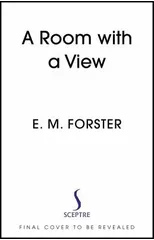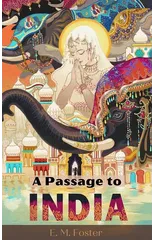A Passage to India (1924) is a novel by English author E. M. Forster set against the backdrop of the British Raj and the Indian independence movement in the 1920s. ... Aziz's trial, and its run-up and aftermath, bring to a boil the common racial tensions and prejudices between Indians and the British who rule India.
E M Forster
E. M. Forster (1879-1970) was an English novelist known for his exploration of class differences and human relationships. His most notable works include "A Room with a View," "Howards End," and "A Passage to India." Forster's writing style is characterized by its clarity, wit, and insight into the complexities of human emotions. He is credited with portraying the inner lives of his characters with sensitivity and depth. Forster's contributions to literature include his exploration of themes such as imperialism, social injustice, and the struggle for personal freedom. His most famous work, "A Passage to India," is considered a masterpiece of modernist literature and continues to be studied and celebrated for its poignant portrayal of the clash between British colonizers and Indian natives. Forster's work has had a lasting impact on the literary genre of the novel, influencing generations of writers with his thoughtful exploration of the human experience.




